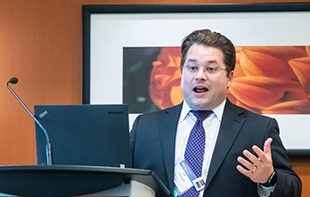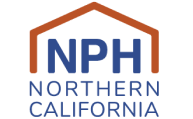NPH’s position on SB 50’s opportunities for our region and state & the critical need to anchor equity in the bill’s policy
NPH calls on the Governor to go bigger on affordable housing (NPH E-News)
January 22, 2020
San Francisco Chronicle: “New wave of homelessness”
January 28, 2020
The Non-Profit Housing Association of Northern California (NPH) believes in a future where everyone has a place to call home and where low-income communities and communities of color stay and prosper in the Bay Area. And we are committed to creating the opportunities that will turn that vision into our reality.
NPH is proud to support and co-sponsor Senate Bill 50 as a big, bold solution for affordable housing in California. The bill offers our Bay Area region and state a critical opportunity to produce badly needed housing so that all of our neighbors have a place to call home, no matter their race or income.
We also understand that SB 50 has been the subject of much discussion and debate over the last year. We agree with the concerns raised in the bill’s first iteration that the bill needed stronger equity provisions. And we have been working closely with many community stakeholders, including grassroots community organizations, non-profit affordable housing developers, tenant rights organizations, legal services organizations and others to address those concerns and make this bill the best version of itself. NPH is committed to ensuring that SB 50 will not only increase the supply of affordable and market-rate homes, but also protect and preserve housing for longstanding residents and low-income communities of color. In fact, it was a condition of our sponsorship that SB 50 incorporate strong affordability and anti-displacement provisions.
This is why NPH is sharing our position with all of our members, partners, and housing supporters today. We offer our perspective as co-sponsors of Senate Bill 50; as vocal advocates for the “3Ps” framework that anchors production, preservation, and protections together; and as a longstanding organization with racial equity and inclusion embedded in our core values and mission for 40 years.
Who We Are
NPH was founded over 40 years ago to make the Bay Area a place where all of our neighbors have an affordable and stable home. We have a track record of success securing investments in affordable housing production and preservation — including assuring a permanent source of funding for affordable housing at the state level and winning more than a dozen state and regional revenue measures over the past four years alone, securing public support for $11+ billion of new investments to build and preserve new affordable homes. We have also spearheaded just and equitable state and regional land use and housing legislation such as strengthening inclusionary zoning, dedicating BART lands for affordable housing, prioritizing public land for public good, and creating a new Bay Area regional housing entity. Our work is informed by our 750+ members, that include those who build, live in, and advocate for affordable housing around the Bay Area.
While we’re proud of the progress we’ve made over the years, our communities today face greater needs than ever, as new housing construction has stalled, income and wealth disparities have grown, and homelessness, displacement, and gentrification have spiked.
Our current housing crisis requires us to have big, audacious goals and big, bold solutions. Over the past several years, NPH has been leading and partnering in conversations and efforts to move forward the comprehensive “3Ps” framework for housing solutions. This holistic approach demands that production, preservation, and tenant protections are all critical components of the housing solutions we need; and for real change, we must move all approaches forward together.
This comprehensive approach to housing solutions has gained steam and developed a strong, broad, multi-sector coalition of supporters. We know that we need to evolve our strategies and solutions so we can accomplish all “3Ps” at the same time. It recognizes that part of the reason we face insufficient, inaccessible, and unaffordable housing today is because of the choices made by generations of short-sighted policy decisions that served a select few, rather than the collective community. Segregation and disinvestment in communities of color, and the concentration of opportunity in exclusive neighborhoods, are some of today’s realities that must be confronted directly by producing new homes at all levels of affordability, preserving existing affordable homes, and protecting tenants from displacement.
We know that California needs to produce more badly-needed homes for California families and workers — we also know that production alone won’t offer the results we need. For NPH, that means that the core question that legislation like SB 50 must answer is: How can we ensure that our state and region produces more affordable and market rate homes and preserves and protects our longstanding residents and low-income communities of color?
Stakeholder Engagement
In 2018 and 2019, NPH partnered with and engaged stakeholders, members, and partners to refine the policy of SB 50 and put equitable development goals into action. As part of our involvement in CASA — the 18 month stakeholder process that brought together 60 diverse organizations across the Bay Area to recommend housing solutions — NPH convened a multi-stakeholder working group of tenant groups, faith-based advocacy organizations, affordable housing and market-rate developers. Over eight months, this group laid out a vision to promote more homes in high opportunity areas, create more affordable housing everywhere, and design protections for low-income communities of color (designated sensitive communities.)
Equipped with this group’s feedback and collective strategy, NPH made critical preservation and protection components a condition of our sponsorship of SB 50 — such as the inclusion of the sensitive communities framework as well as significant levels of affordability. We believe these components will make the bill much stronger in its ability to create solutions for all of our communities, and we’re proud to have secured the bill author’s support for these provisions.
SB 50 Opportunities: Production & Protections
Through NPH’s sponsorship of this legislation and critical conversations over the past 16 months with community groups from across the state, SB 50 was strengthened to create new opportunities for permanently affordable housing, while ensuring that we minimize potential harm to low-income communities of color.
The bill opens up exclusionary neighborhoods that have made multi-family housing illegal and entrenched economic and racial segregation. SB 50 overrides restrictive local zoning restrictions that prohibit multi-family homes, and requires a significant percentage of all new development be permanently affordable with an inclusionary component between 15 – 25%, depending on the project size. At the lower end, this affordable requirement is consistent with the most ambitious inclusionary policies in the state of California and, at the higher end, the affordability requirement tracks with some of our state’s most ambitious community benefits agreements. With these affordability requirements, UC Berkeley’s Urban Displacement Project estimates that in the Bay Area alone, the zoning changes made through the bill are expected to double the number of affordable homes by helping to build 100,000 new deed-restricted affordable for homes for our veterans, seniors, and people with disabilities.
The bill also includes critical anti-displacement protections to ensure that new growth does not displace existing low-income communities of color. These protections include no upzoning in parcels that have been occupied by tenants over the past seven years or in any parcel that has had an Ellis Act eviction over the past 15 years. This will prevent mass evictions of tenants or demolition of rental housing in anticipation of the higher sales price an upzoned parcel could attract. SB 50 also respects hard fought local victories to promote transit-oriented development, through exempting local plans that create the additional homes near transit and jobs and provide the affordability levels that SB 50 would otherwise create. .
Further, NPH’s persistent advocacy and leadership led to the inclusion of the sensitive communities designation in SB 50, which empowers low income communities of color with self-determination by offering a deferral of any state-imposed upzoning for a period of 5 years. As a result, sensitive communities will have this five-year period of time to engage in a neighborhood-level process to determine what future development will look like for that neighborhood and ensure that long-time residents benefit from the new development. While this part of the bill language is still being updated, we are working hard to get the details strong and aligned with community priorities.
What’s next?
We need more market-rate housing and affordable housing to address the current historic housing shortage. We also need to preserve existing affordable housing, protect tenants from displacement and aggressively address and prevent homelessness. SB 50 creates a balanced approach utilizing all of the “3Ps” tools to significantly help build both the market-rate and affordable homes the state needs while anchoring and ensuring equity protections in the policy implementation.
The bill is not a panacea for all housing problems. We will surely need to continue to advocate for substantial new funding to fully close our state’s gap of 1.4 million new affordable homes, address our need for construction workers to build these homes, and ensure that we have enough land and the appropriate regulations to make it all happen. In the meantime, we need to continue to do all we can to fight NIMBYism, segregation and exclusion, and to keep people in their homes and end homelessness. We’ll continue to fight for policies that allow existing low-income tenants to stay in place and that preserve our region’s existing affordable housing stock.
SB 50, with all of its planning, considerations, and ongoing conversations, is an opportunity to move us closer to the future we want for ourselves, our families, and our neighbors — where everyone has a place to call home and where low-income communities and communities of color stay and prosper in the Bay Area.
NPH is committed to supporting this opportunity for affordable housing production, preservation and protections. We are also committed to continuing the thoughtful, ongoing dialogue to make this bill the best it can be for all of our neighbors, no exceptions. We believe in SB 50. We invite you to join us.

